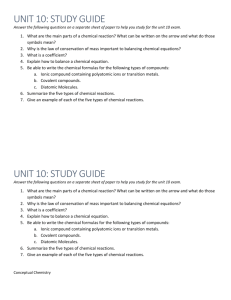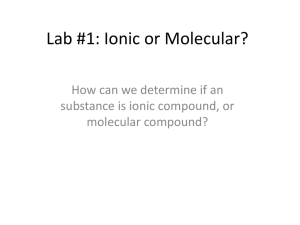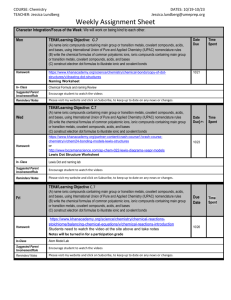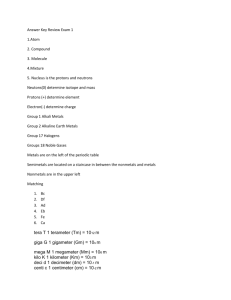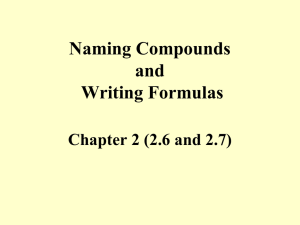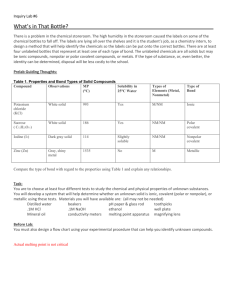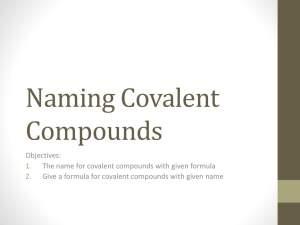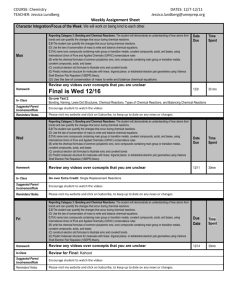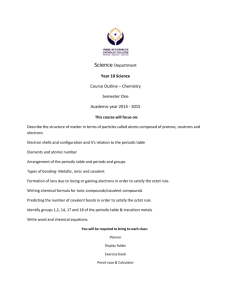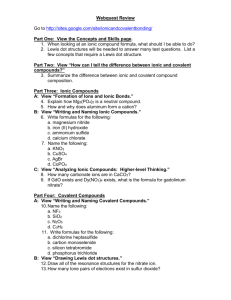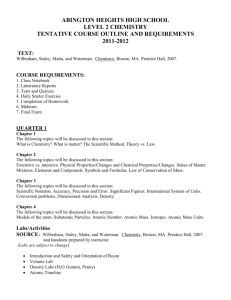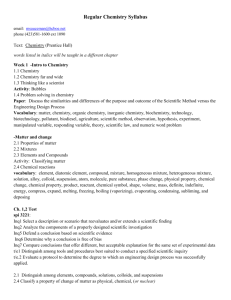Chem Assignment Sheet 9
advertisement
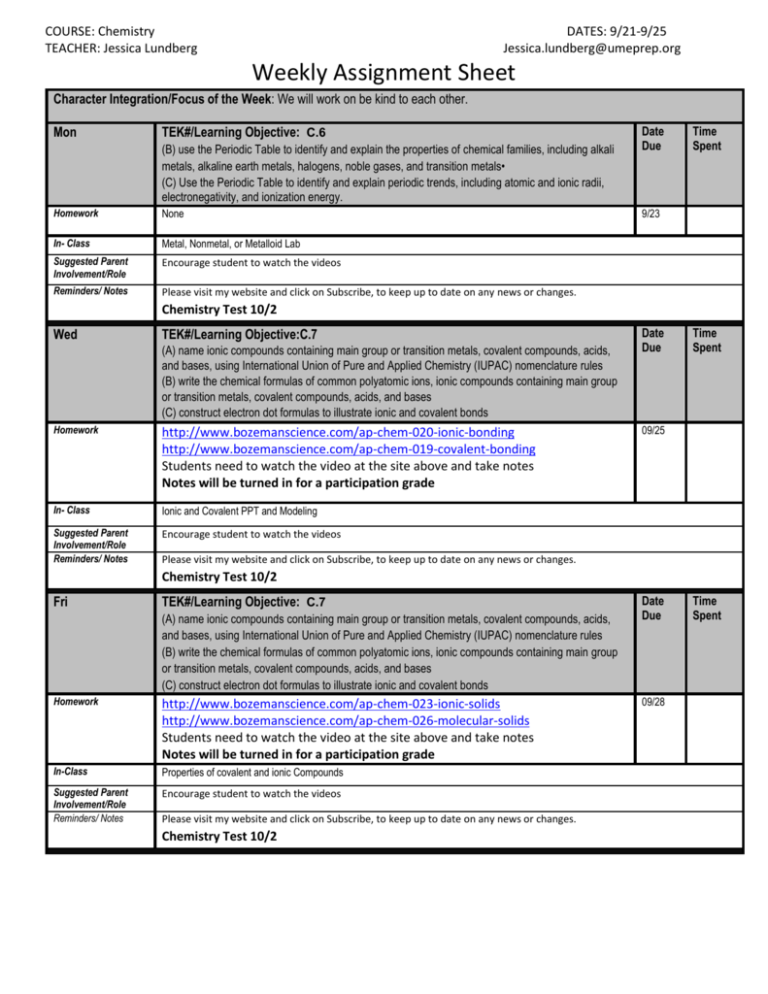
COURSE: Chemistry TEACHER: Jessica Lundberg DATES: 9/21-9/25 Jessica.lundberg@umeprep.org Weekly Assignment Sheet Character Integration/Focus of the Week: We will work on be kind to each other. Mon TEK#/Learning Objective: C.6 (B) use the Periodic Table to identify and explain the properties of chemical families, including alkali metals, alkaline earth metals, halogens, noble gases, and transition metals• (C) Use the Periodic Table to identify and explain periodic trends, including atomic and ionic radii, electronegativity, and ionization energy. Homework None In- Class Metal, Nonmetal, or Metalloid Lab Suggested Parent Involvement/Role Encourage student to watch the videos Reminders/ Notes Please visit my website and click on Subscribe, to keep up to date on any news or changes. Date Due Time Spent 9/23 Chemistry Test 10/2 Wed TEK#/Learning Objective:C.7 (A) name ionic compounds containing main group or transition metals, covalent compounds, acids, and bases, using International Union of Pure and Applied Chemistry (IUPAC) nomenclature rules (B) write the chemical formulas of common polyatomic ions, ionic compounds containing main group or transition metals, covalent compounds, acids, and bases (C) construct electron dot formulas to illustrate ionic and covalent bonds Homework http://www.bozemanscience.com/ap-chem-020-ionic-bonding http://www.bozemanscience.com/ap-chem-019-covalent-bonding Students need to watch the video at the site above and take notes Notes will be turned in for a participation grade In- Class Ionic and Covalent PPT and Modeling Suggested Parent Involvement/Role Reminders/ Notes Encourage student to watch the videos Date Due Time Spent 09/25 Please visit my website and click on Subscribe, to keep up to date on any news or changes. Chemistry Test 10/2 Fri TEK#/Learning Objective: C.7 (A) name ionic compounds containing main group or transition metals, covalent compounds, acids, and bases, using International Union of Pure and Applied Chemistry (IUPAC) nomenclature rules (B) write the chemical formulas of common polyatomic ions, ionic compounds containing main group or transition metals, covalent compounds, acids, and bases (C) construct electron dot formulas to illustrate ionic and covalent bonds Homework http://www.bozemanscience.com/ap-chem-023-ionic-solids http://www.bozemanscience.com/ap-chem-026-molecular-solids Students need to watch the video at the site above and take notes Notes will be turned in for a participation grade In-Class Properties of covalent and ionic Compounds Suggested Parent Involvement/Role Reminders/ Notes Encourage student to watch the videos Please visit my website and click on Subscribe, to keep up to date on any news or changes. Chemistry Test 10/2 Date Due 09/28 Time Spent
